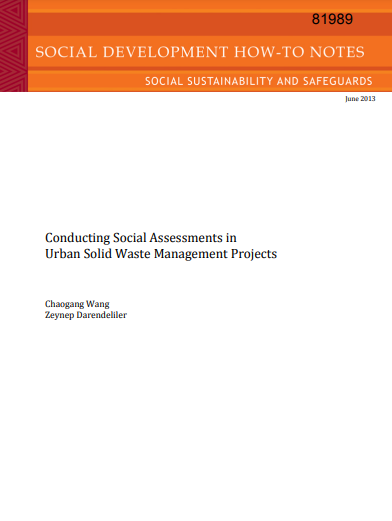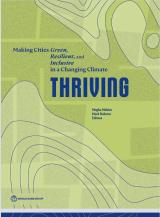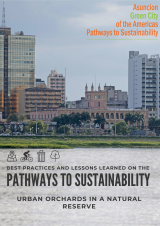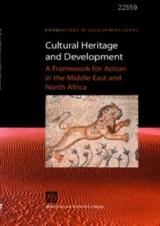
-
Country/City
World
-
Topics
Economic and Social Development, Policy and Governance, Solid Waste Management (SWM)
-
Published On
June 1, 2013
-
Author(s)
World Bank, Chaogang Wang, Zeynep Darendeliler
The social issues involved in solid waste management (SWM) projects are oftentimes complex and city specific; solutions require a solid understanding of technical, social and cultural issues. Understanding the social dimensions of a solid waste project is a crucial element of the long-term sustainability of the project. The overall objective of a Social Assessment (SA) of urban SWM projects is to identify the potential social impacts and risks and to propose measures for the design of the intervention both to eliminate harmful effects and to maximize benefits. Conducting social assessments is the responsibility of the client; however, the Bank task team usually needs to provide guidance to clients on how to conduct them. This note aims to provide practical guidance to social specialists working on urban SWM projects in designing social assessments. It is not definitive. Instead, it is aimed at helping social specialists structure and lead conversations on issues related SWM projects with technical teams, clients and other stakeholders. It will also help SWM specialists and clients to have a better understanding of the social dimensions of urban SWM projects and contribute to a better design. Urban SWM projects often require land acquisition and trigger the World Bank OP 4.12 on Involuntary Resettlement. While land acquisition and resettlement create significant social impacts, detailed guidance on the implementation of OP 4.12 is available, and this note therefore will not offer guidance on these issues. This note is intended as guidance for the social assessments to be conducted under OP 4.01 and covers social issues beyond involuntary resettlement.



